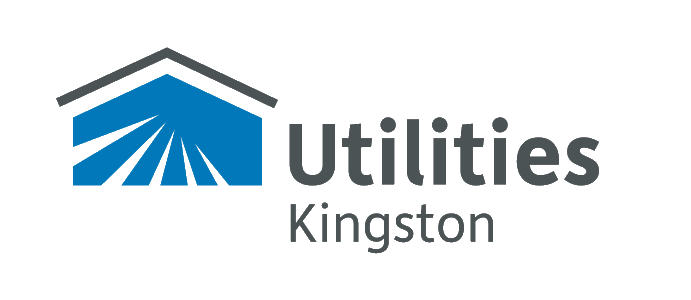2018 Achievements
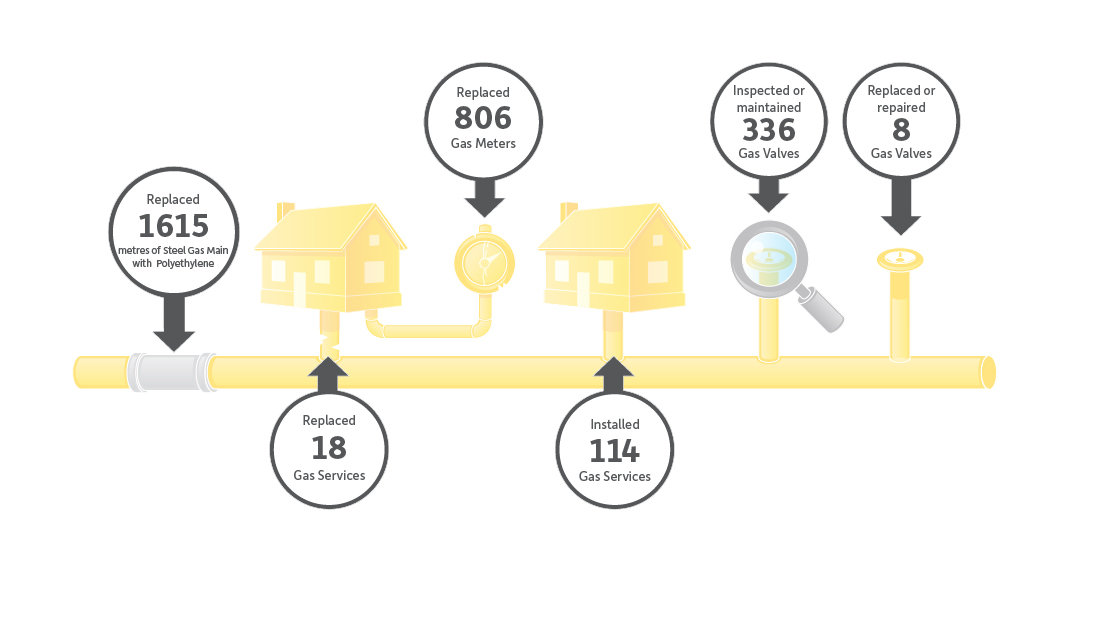 Click to enlarge
Click to enlarge
What's the context?
We've provided data on our achievements in 2018. If you're looking for additional context on how much overall infrastructure we maintain, check out our overview infographics.
806 gas meters replaced is out of 15,000 gas meters in the municipal gas distribution system, which have reached their end of life, as determined by Measurement Canada.
Internal Resources for New Gas Service Installs
During 2018, Utilities Kingston began the process to install new gas services using in-house resources.
This opportunity ensures excellent quality of work, allows our team to continually assess the condition of our underground assests as we expose and work on the underground pipe throughout the city, and ensures that our staff members are exposed to all aspects of gas construction work.
In this first year, we ensured excellent processes and upgraded equipment for current standards.
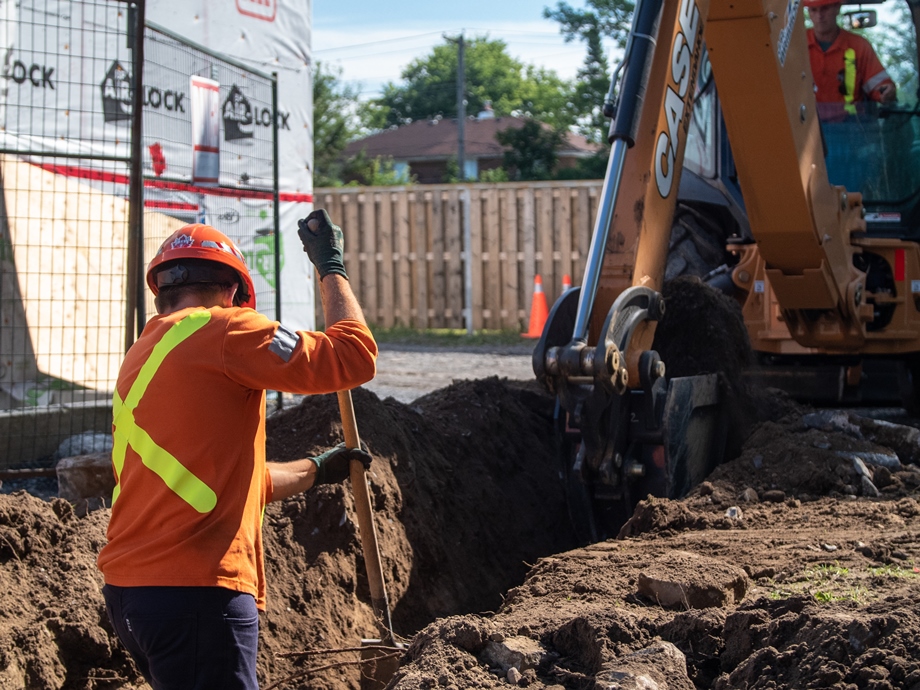
Gas Valve Maintenance Program
Utilities Kingston maintains over 1,400 mainline gas valves. The gas valve maintenance program helps to ensure the integrity of the municipal gas distribution system.
In 2018, we inspected or maintained 336 valves, focusing on high pressure and steel gas mains, and priority valves for schools, hospitals and construction sites.
Training
Competency Assessment Program
Staff training and competency continued to be a key focus. We identified training and assessment requirements under the Competency Assessment Program. All new employees involved in gas operations took part in the Technical Standards & Safety Authority (TSSA) Gas Pipeline Inspectors Certification.
Gas Regulator Technician Training
All gas construction and service technicians completed a two-day Gas Regulator Technician Course. This course promotes understanding of the operations and maintenance of all gas regulators throughout the distribution system.
Ensuring Gas Safety
As part of maintaining the integrity of the natural gas system, on an annual basis we inspect over 20 per cent of the infrastructure for leaks.
Overall, we maintain 259 kilometres of gas main and the other assets described in our natural gas overview infographic. Here's what we inspected in 2018:
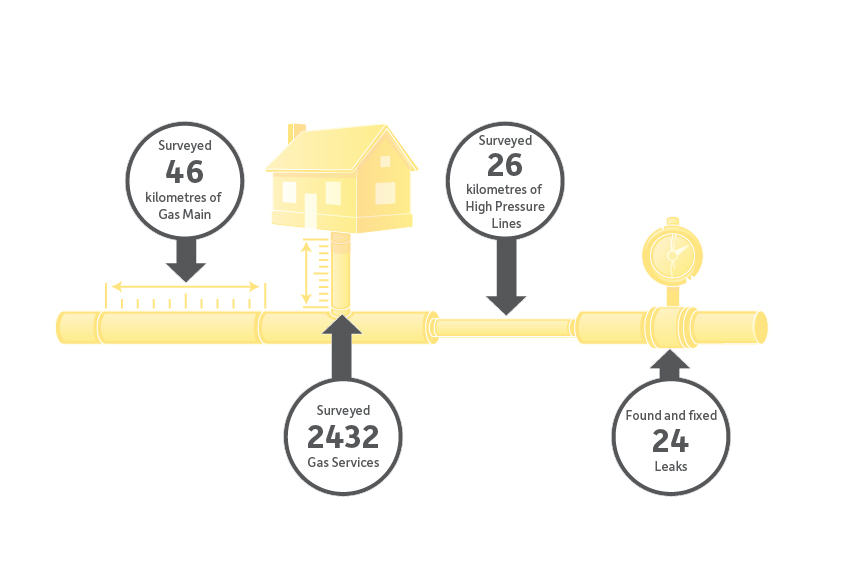 Click to enlarge
Click to enlarge
Regulation and Legislation
Reporting System Damage
Ontario Regulation 210/01, Oil And Gas Pipeline Systems, requires that Utilities Kingston reports when there has been damage to the system that results in a gas leak. In 2018, there were a total of 11 occurrences, compared to nine in 2017 and 22 in 2016. An increased public awareness of gas hits helped encourage a downward trend.
Audit of Customer Appliances
As part of a TSSA audit, mandated under the Electricity and Gas Inspection Act, we conducted 896 inspections of customer-owned appliances, piping and fittings, and identified 385 hazards. Property owners were advised on what to do next, helping to improve occupant safety.

Cathodic Protection
Effective cathodic protection extends the life of steel pipelines for improved safety and asset management. Approximately 25 per cent of the municipal gas distribution is composed of steel. In 2017, we reviewed procedures to ensure compliance with the requirements of the Oil and Gas Pipeline Systems code. In 2018, Utilities Kingston updated policies and trained staff.
Legal Requirements of Gas Meters
As determined by Measurement Canada, and in accordance with the Electricity and Gas Inspection Act, every year we send a sample number of gas meters to verify accuracy and that the meters conform to legal requirements. In 2018, we replaced 806 gas meters for this purpose.
Gas meters must be verified and reverified within appropriate periods, established on the basis of their stability of performance, application and usage. Measurement Canada determines how meters are selected for verification. This is based on criteria that include age, size and manufacturer. Meters are typically verified and reverified every 7 to 10 years.
Distribution System Integrity Management Program
The Distribution System Integrity Management Program (DSIMP) is a requirement under CSA Z662- 15 Oil and Gas Pipeline Systems. In 2018, we conducted the annual compliance review to identify and address issues.
The annual review focused on the continued improvement of procedures that support the DSIMP, focusing on the areas of emergency response and leak detection.
